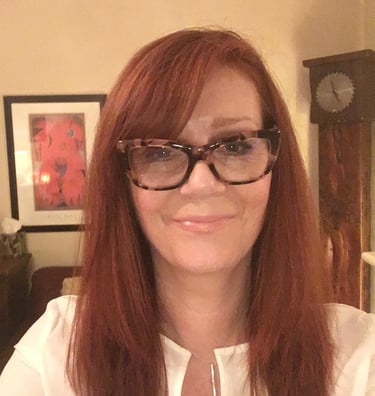Worsley Counsellor
Carey Gempton




About me
I am a BACP Accredited, qualified Therapist with over twenty years’ experience working as a Counsellor and Psychotherapist within a university setting, further education, and as a staff counsellor within the NHS and within The Priory Hospital.
I also work within Private Practice, undertaking referrals from several sources, including private individuals, Employee Assistance Programmes and occupational health companies.


What I can help you with
I am an experienced, professionally qualified and registered Counsellor and Psychotherapist working in Worsley, Manchester. I am committed to providing counselling and psychotherapy in a safe, confidential and non-judgemental environment. I am practised in working with the sorts of issues that may be troubling you now. For example:
Stress
Anxiety
Panic attacks
Depression
Emotional, physical and sexual abuse (past and present)
Post traumatic stress
Relationship difficulties
Work issues or redundancy
Panic attacks
Bullying
Family issues
Self-esteem issues
Poor Body image
Bereavement and loss


Qualifications
Advanced Certificate in CBT – Manchester Centre for CBT 2014
Post Grad Certificate in Counselling Studies – Salford University 2008
MSc Module in Supervision – Salford University 2005
BACP Accredited in 2005
MSc Module in Brief Therapy – Salford University 2004
Diploma in Counselling – Salford University 2003
Certificate in Counselling – Salford University 2001
BA Hons – Lancaster University 1985
Why Counselling?
Many people find the idea of coming to counselling a daunting prospect. Not only might they be opening themselves up for the very first time, they’ll be opening up to a complete stranger. I believe that the emotional pain is more often than not the result of an unfortunate set of life experiences, or some other factor beyond our control, and isn’t due to any ‘fault’ in that person for which they might be ‘judged’.
From the first meeting, many people describe a sense of relief from sharing their thoughts and feelings. For many, it is a first experience of being listened to without criticism or judgement and it opens a window of hope for change and personal development.
Once you’ve taken the first step, people frequently discover that the knowledge that the therapist is in fact a complete stranger, and is separate from their own life, has a liberating effect. There can also be some value in the fact that the therapist is impartial, and is not emotionally invested in you. What goes on during a session will always remain between you and your therapist, (with rare exceptions), and there’s no chance of anyone in your everyday life hearing anything about it – in fact, complete confidence and trust is essential to the very process of therapy, and is a principle to which I’m ethically and professionally bound.




Therapy
The assessment process, which begins during the first session, is the process through which we can begin to form a collaborative strategy for you to reach your goals in therapy – a strategy that we both agree is realistic and achievable.
Setting goals for therapy is important, and so I’m likely to ask some questions during the first session – about what you want to get out of therapy, about the particular concerns you want to deal with, about how you would like your life to be once you achieve what you set out to in therapy – along with many others. I will also want to hear about aspects of your life that are going well for you, and to identify the abilities and strengths that have given you the resilience to carry on although it may have been very hard at times.
As a consequence, we will both share a common understanding of your current difficulties, and have developed a clear idea of where therapy should be heading. That, in conjunction with a reliable appraisal of your existing strengths, qualities, skills and coping mechanisms that will help you achieve your goals in therapy, will allow you to embark on the process of therapy itself with a sense of clarity and direction.
Cognitive Behavioural Therapy
CBT works by helping you make sense of overwhelming problems by breaking them down into smaller parts. Your thoughts, feelings, physical sensations and actions are interconnected, often trapping you in a negative spiral. CBT helps you stop these negative cycles. It aims to break down factors that are making you feel bad, anxious or scared so that they are more manageable. It can show you how to change these negative patterns to improve the way you feel.
CBT cannot remove your problems, but can help you manage them in a more positive way. It encourages you to examine how your actions can affect how you think and feel. Talking and changing your behaviour can change how you think (cognitive) and what you do (behaviour). This can make you feel better about life. It’s an active, solution-focused form of therapy that helps us address those habitual behaviours that keep holding us back, and confront negative biases in the way we think and feel.
Evidence suggests that CBT is at least as effective as medication for depression, and leads to lower relapse rates. This is because it gets to the heart of the ‘vicious cycle’ of negative thoughts, feelings and actions that depression and anxiety can trap us in.
Integrative therapy
I am trained and experienced in a range of therapeutic approaches, including Person Centred Therapy, Transactional Analysis, Solution focused therapy and CBT, allowing me to adapt the therapeutic experience to meet your particular needs and emotional concerns. Rather than trying to match the client to a therapy, I’d much rather match therapy to the client.
Types of therapy
Session fees
I charge £60 per session for individual therapy.
“….You’ve helped me turn things around and see things in a more positive light. Your ideas are working well and I feel I would have no hesitation in contacting you in the future and recommending you to my friends.”
“Thank you! Thank you! For listening to me. You will never realise how much your support has meant to me. It’s amazing how much comfort you get by just knowing people are there.”
Affirmations
“….I just wanted to thank you for your help and support over the last few months. I couldn’t have done it, or what I’m about to do, without you – thank you from the bottom of my heart.”
“I think a lot of the work that you did with me made me strong enough to deal with what I had to deal with and come out stronger, wiser and finally in control of my life”.
“The CBT strategies I learned from counselling have been really helpful, and I know I will take these with me going forward. I now notice what I am thinking and look at different ways of approaching problems. I’m getting more confident to do the things I have been frightened of, and avoiding, for years.”
“Thank you Carey. The only question I have left to ask is, why didn’t I come sooner!”